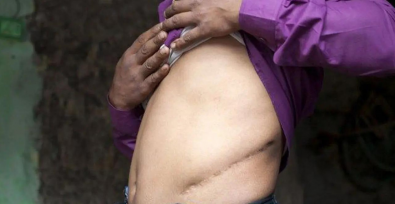Governments can’t afford to undo slavery in prisons. At least, that’s what we’ve been hearing for years. But maybe they can. This is the conclusion of a groundbreaking cost-benefit analysis conducted by economics firm Edgeworth Economics.
The study, titled “A Cost-Benefit Analysis: The Impact of Ending Slavery and Involuntary Servitude as Criminal Punishment and Paying Incarcerated Workers Fair Wages,” provides an in-depth analysis of the fiscal costs and benefits of ending the exploitation of incarcerated workers through fair wage practices.
How ending prison slavery could net billions
The findings of this first-of-its-kind analysis demonstrate that doing so will greatly benefit not only incarcerated workers but also their families, victims of crimes, and society as a whole.
Here’s what they found:
- Crime victims stand to benefit from increased victim restitution payments, estimated at $89 million annually for robberies alone.
- Tax payments by incarcerated workers are projected to yield between $1.5 billion and $3.2 billion annually, bolstering public revenue streams.
- A 5% reduction in the recidivism and reincarceration rates of incarcerated workers leading to
- A projected annual reduction of at least $1.3 billion in incarceration costs and $3.7 billion in crime-related expenses.
- Families and children of incarcerated individuals would save on support costs and receive additional financial support totaling $4.5 billion to $5.8 billion annually leading to greater societal and economic stability.
“We shouldn’t have to make the economic case”
In 2022, California came so close to changing its state constitution to abolish slavery in all forms – even in prisons – but Governor Newsom’s administration issued a warning that doing so would cost taxpayers billions of dollars. Incarcerated workers do construction, kitchen work, firefighting, hospice care, computer coding, janitorial work, among other jobs in California. And their minimum wage? 8 cents an hour.
In Santa Rita, California, a group of pre-trial detainees, that is persons who are awaiting trial and have yet to be convicted for a crime, are suing Aramark for forced unpaid kitchen work that they say contributes to the multi-billion-dollar company’s profits.
Aramark and the state county are pushing back.
But these new findings indicate that the state may want to let the company face the lawsuit alone and, instead, support the workers’ call for a decent minimum wage. Or perhaps they should have already known that.
According to Bianca Tylek, founder and Executive Director of the NGO, Worth Rises, which organized the study,
“We shouldn’t have to make the economic case for ending prison slavery, certainly not in 2024. The protection from slavery should be a basic human right… This study reinforces our stance on the moral imperative to end prison slavery by presenting a compelling economic argument for doing so. By ending the use of slavery as criminal punishment and mandating fair wages for all, we can foster a more humane, equitable, and prosperous society for all.”
Join the movement
Freedom United and Worth Rises have been campaigning alongside each other trying to end prison slavery by amending the 13th Amendment of the U.S Constitution.
We didn’t need a financial incentive to want to end slavery. We’ve said it before and we’ll say it again: slavery is always wrong.







Freedom United is interested in hearing from our community and welcomes relevant, informed comments, advice, and insights that advance the conversation around our campaigns and advocacy. We value inclusivity and respect within our community. To be approved, your comments should be civil.
It is a disgrace that modern Slavery still exists. Every human deserves their freedom and rights. Modern Slavery must be abolished now.
Die Sklaverei ist seit 150 Jahre überflüssig und muss Weltweit abgeschafft werden. Was sind das für Menschen die noch an der Sklaverei, festhalten, schiebt die doch für 1/2 Jahr in die Sklaverei.
Die Sklaverei ist seit mindestens 150 Jahren überflüssig und muss Weltweit abgeschafft werden. Was sind das für Menschen die immer noch an der Sklaverei festhalten, schiebt die doch mal für 1/2 Jahr in die Sklaverei.
I’ve just finished reading a book by David Sheff about an incredible human being Jarvis Jay Taylor incarcerated in the hellpit of San quentin unjustly for most of his life. The book is call The Buddhist on Death Row. America’s penal system is SHOCKING and there is no justice in the system. It’s cruelty and corruption and stealing lives of men who just need help, support, love and understanding and a chance in life. Many of them have had dreadful childhoods and I mean probably horrendous!!!
안녕하세요 현대판 노예제도에 관심이 있는 학생입니다.
그리고 과도한 요구로 인하여 보상과 댓가를 못받는 노동자가 많아요
우리는 그걸 노동착취라고 보기로했습니다.
그리고 복지문제도 심각할뿐더러
아마 정치체제가. 봉건적사고를 가진 정치사상가가 존재할겁니다 각국에 말이죠.
그리고 권위주의로 인해서 노동탄압을 할수도있습니다!